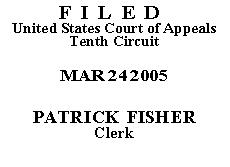
Plaintiff,
ALBERT E. HESLOP; WILLIAM O. FELLMAN; JEFFERSON W. SANDERS; EARL HARRIS; ALLAN R. TURNER; BRYAN EUGENE PEARSON; HOLLOMAN SULLIVAN; JEFFERY CLARK, SR.; DENNIS EICHELBERGER; LUTHER DEERE; JOSEPH E. MERSMAN, JR.; AARON EUGENE CREECH; MARC A. STOUT; JOSHUA M. WISHON; KEVIN GRAY; JAMES M. POLLOCK; ROBERT H. HUTCHCRAFT; JESSE CAMACHO; THOMAS MIZE; BRYAN LEE WILLIAMSON; DAVID MUSGROVE; STANLEY GARTLEMAN; DENNIS ROBINSON,
Intervenor-Plaintiffs,
and
JIM C. ELLIOTT,
Intervenor-Plaintiff- Appellant,
v.
TIM CRAGG, Hearing Officer, Kansas Department of Corrections; JOHN LAMB, Regional Director, Northern Parole Region, Kansas Department of Corrections; CHARLES SIMMONS, Secretary of Corrections, Kansas Department of Corrections; MARILYN SCAFE, Chairperson, Kansas Parole Board; DAVID MCKUNE, Warden, Lansing Correctional Facility; MIKE NEVE, Classification Administrator, Lansing Correctional Facility,
Defendants - Appellees.